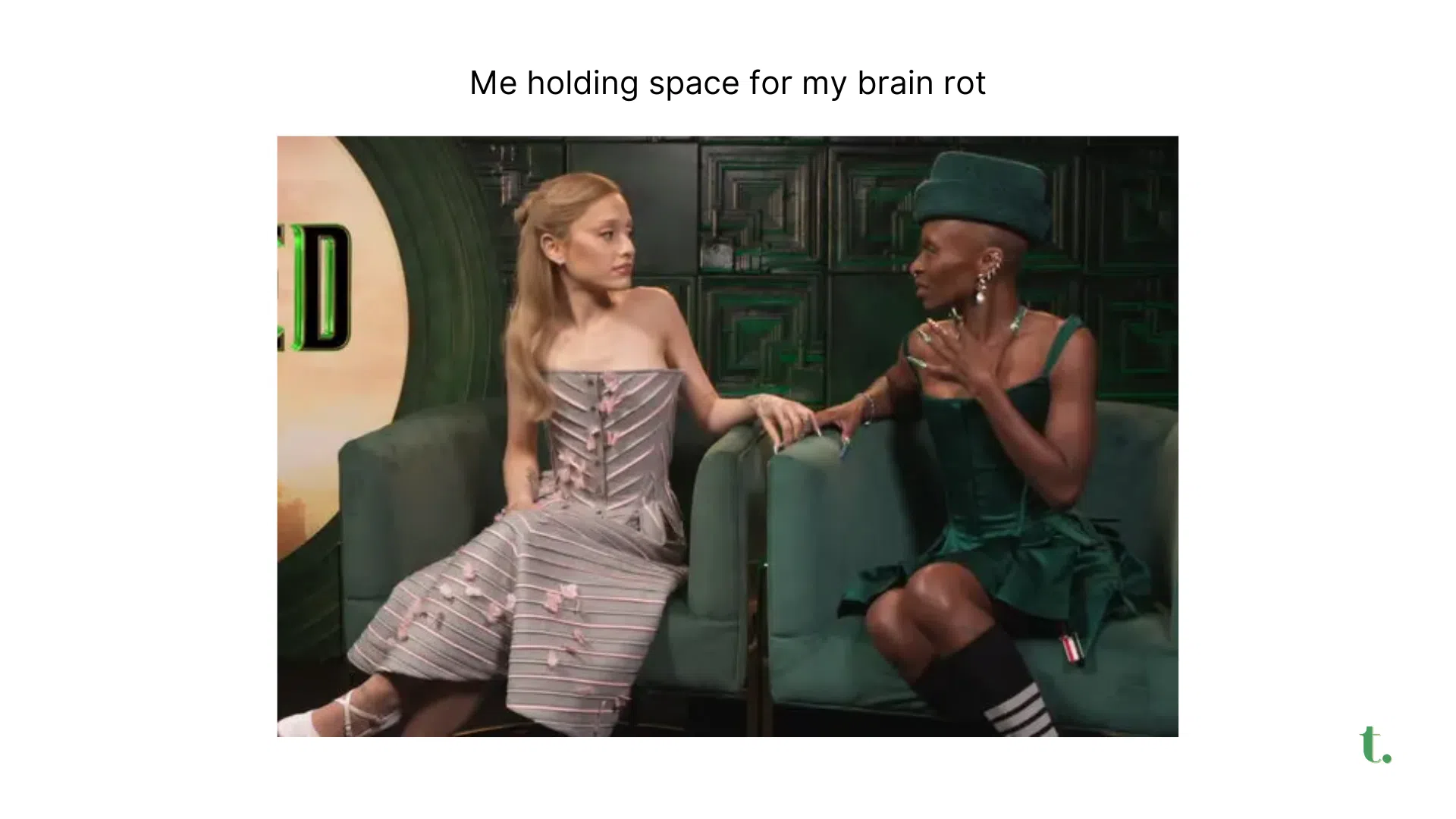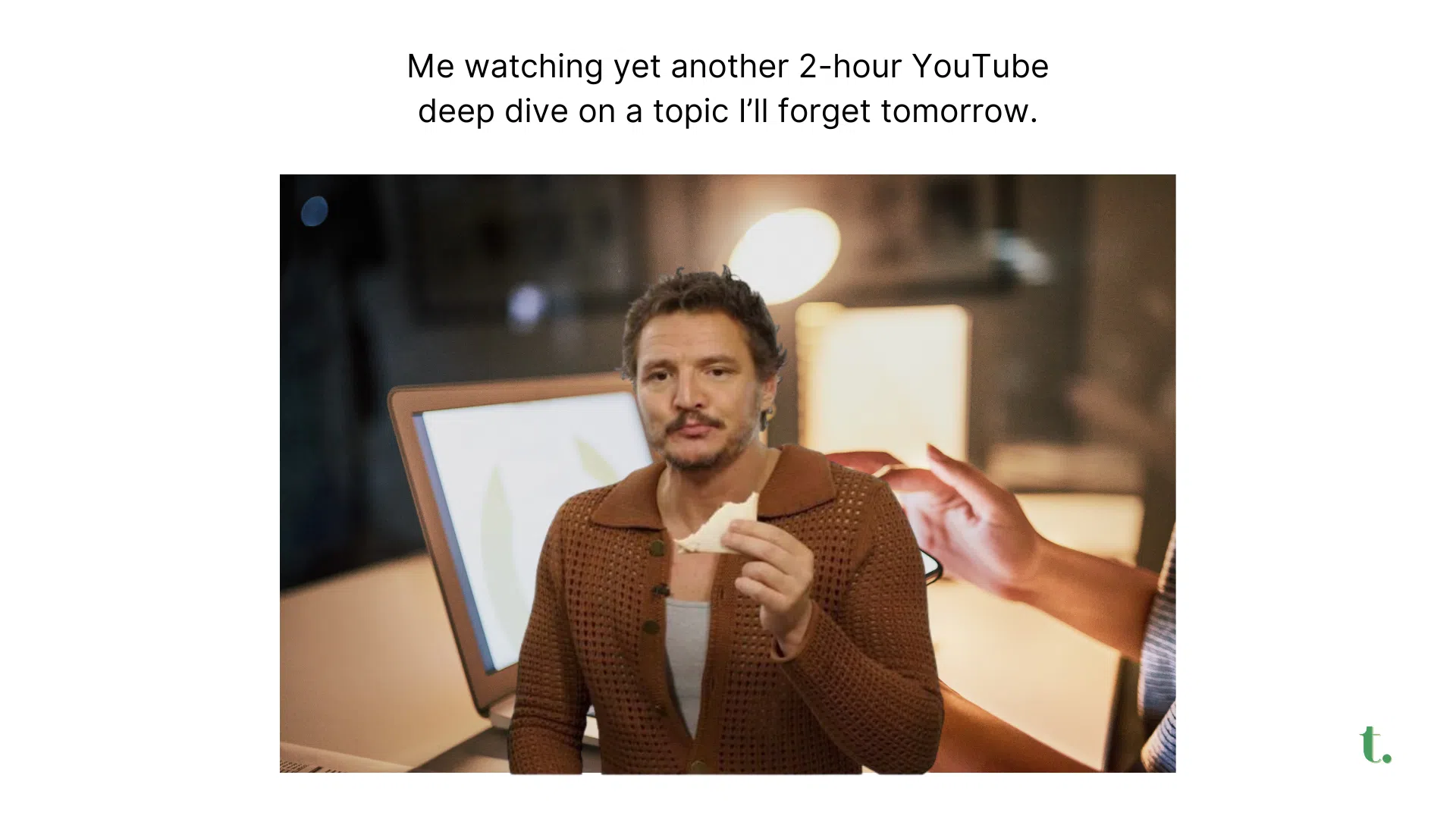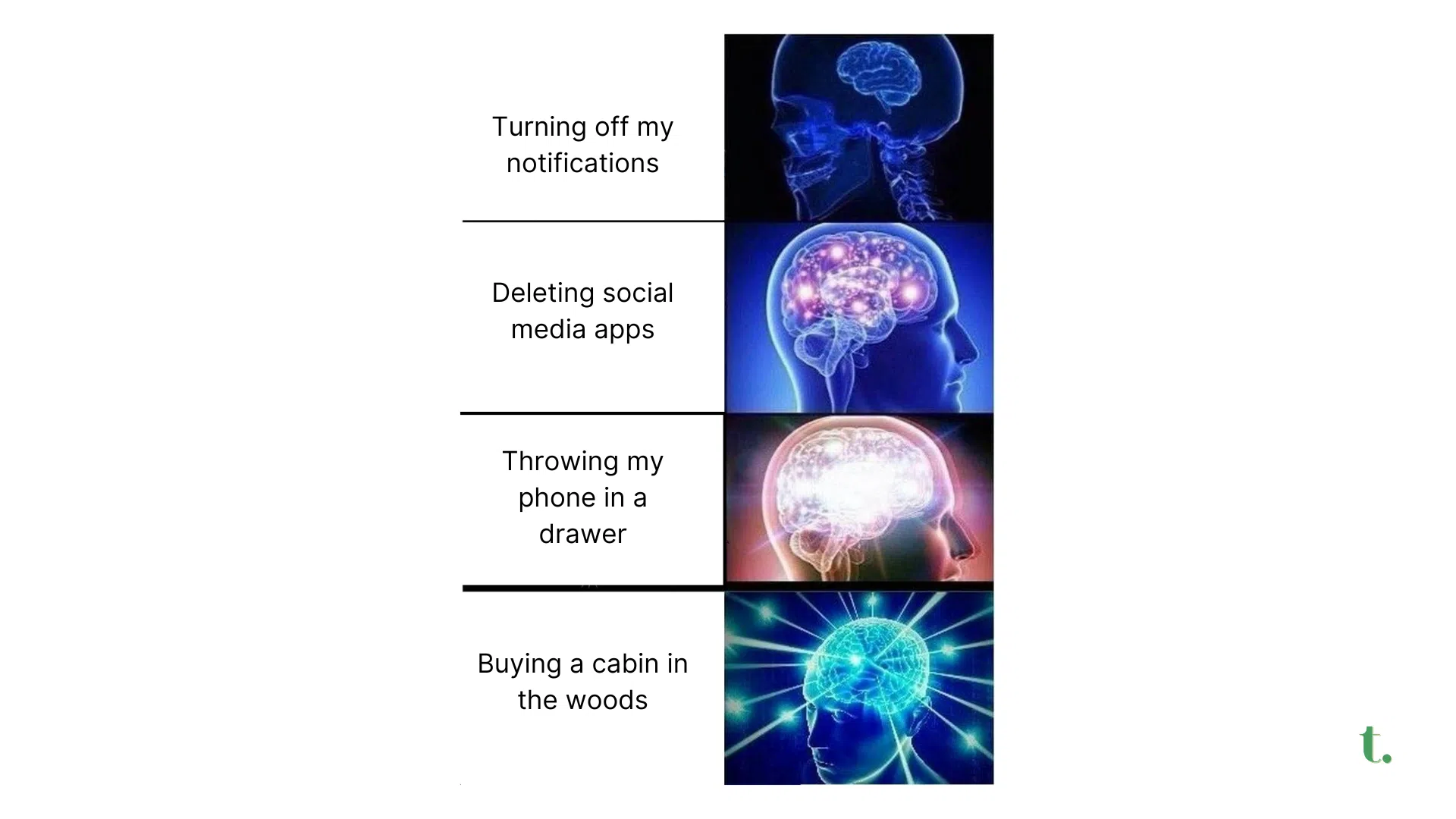🤯 Is ‘brain rot’ taking over your life?
Find out more and sign up for thrive at bt.sg/thrive

Straight to your inbox. Money, career and life hacks to help young adults stay ahead.
🗑️ What is “brain rot”?
With the term first gaining traction during the Covid-19 pandemic, brain rot captures the zeitgeist of a generation constantly plugged into screens. It is that feeling when your head constantly buzzes with trivial, albeit very entertaining, memes and debates 🤭.
Despite its sardonic name, it is worth noting that social media is not inherently bad.
Psychology student Karan Krishaan, 23, sees brain rot as a reflection of Gen Z’s “unserious but optimistic” relationship with the internet. While he follows many humorous accounts and enjoys sharing memes with his friends, Karan also uses social media to support his learning. He follows psychology-themed Instagram accounts, reads online articles, and watches videos that aid him with understanding niche topics 📚.

But from a psychological perspective, Dr Jared Ng, psychiatrist and medical director at Connections MindHealth, defines brain rot as “mental exhaustion or numbness after consuming a lot of digital content, especially (if it) is repetitive or shallow.”
While not a medical term, brain rot can overlap with recognised issues like:
- digital fatigue 😮💨
- attention difficulties
- affecting focus 🥱
- emotional regulation
- sleep patterns 😴
Andrea Chan, deputy director of TOUCH Mental Wellness, adds that brain rot can lead to “persistent under-stimulation of the brain”.
Navigate Asia in
a new global order
Get the insights delivered to your inbox.
🧠 The impact of brain rot
Brain rot doesn’t just affect one’s focus, it seeps into everyday lingo, reshaping how people communicate.
For English major Gwendolyn Chan, 21, being “chronically online” means encountering Gen Alpha slang like “skibbidi” and “ohio” 🤪, viral terms which often remain ambiguous.
“It’s never really clear how these words are synonymous with greatness or disgust,” she says. Such language, born from the humour and chaos of digital trends, reflects the fleeting and shallow nature of online interactions, further eroding authentic communication.

Beyond language, the toll of brain rot extends to social and mental health.
“It can lead to social isolation as online interactions often lack the depth of face-to-face connections,” explains Dr Ng. “Over time, these patterns may contribute to anxiety, depression, and difficulties forming healthy relationships.”
Chan notes that brain rot undermines essential social skills such as reading non-verbal cues and holding meaningful conversations. “It deteriorates mental resilience, creating a sense of helplessness or irritability,” she says.
The extremity would be struggling to be mentally present at a social gathering when your mind is itching to refresh your feed. Even in social settings, brain rot can isolate individuals, leaving them to crave the next dopamine hit from their screens 😓.
🦅 Breaking free
Both Dr Ng and Chan stress the importance of being intentional about screen time.
Contrary to popular belief, social media detox is not the only solution to get rid of brain rot. As mentioned earlier, it can serve as a powerful tool when used intentionally. The key? Reclaim control over your usage 💪🏼.
By investing your time differently like launching an online business or sharing your passions, you have now shifted from passive consumption to active creation. Yay!
Take recent graduate Samantha (not her real name), 24, as an example. She used to spend most of her waking hours on social media. Even in classes, Samantha would aggressively scroll through her Pinterest feed. It came to an awkward point when she rambled about Douyin makeup styles 💄in an interview with her dream company.
Realising that she needed to make a change in her digital habits, Samantha decided to take her love for art in a new direction. She created an online portfolio to showcase all of her designs which has been credited with helping her bag an internship with a media agency.
Additionally, Dr Ng recommends taking intentional steps such as avoiding screens during meals or before bed can make a difference, as can engaging in physical activities like exercising 🏃, spending time with loved ones, or visiting green spaces like East Coast Park or the Botanic Gardens to reconnect with nature 🌿.
Chan adds: “Build a life that doesn’t just revolve around screen time.”

Adopting personal strategies can also help. Gwendolyn relies on digital decluttering. She unfollows pages that do not align with her interests and uses platform features like the “not interested” button to filter her feed and disrupt the cycle of mindless scrolling 💻.
Meanwhile, Karan takes a different approach by opening all his notifications at once so his “phone is dry” and he has “nothing to respond to”, allowing him to focus on work without distraction. These small but impactful steps show how anyone can reclaim control over their digital habits.
Ultimately, combating brain rot is about completely disconnecting, it is about creating balance and reconnecting with the things that matter most 🤝. Whether it’s finding joy in nurturing real-world relationships or setting healthy digital habits, taking small steps can make a big difference.
TL;DR
- While brain rot has downsides, social media can be a powerful tool for learning, networking, and showcasing creativity
- Brain rot can affect focus, emotional regulation, and social skills
- Overcoming brain rot is more about creating balance rather than a detox
- Set boundaries around screen time and reconnect with office activities
Decoding Asia newsletter: your guide to navigating Asia in a new global order. Sign up here to get Decoding Asia newsletter. Delivered to your inbox. Free.
Copyright SPH Media. All rights reserved.
